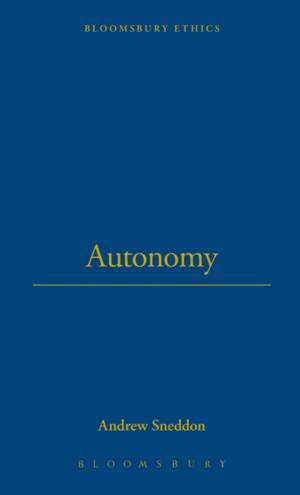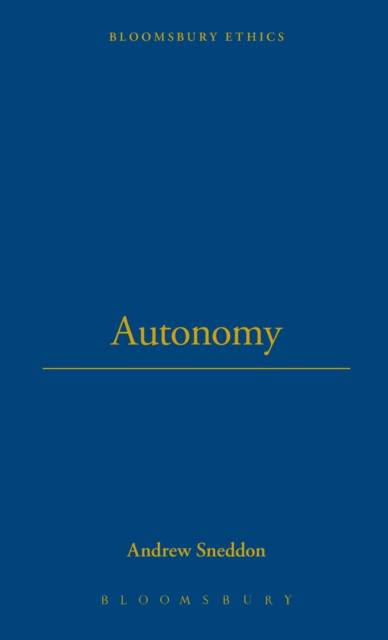
- Afhalen na 1 uur in een winkel met voorraad
- Gratis thuislevering in België vanaf € 30
- Ruim aanbod met 7 miljoen producten
- Afhalen na 1 uur in een winkel met voorraad
- Gratis thuislevering in België vanaf € 30
- Ruim aanbod met 7 miljoen producten
Zoeken
Omschrijving
Philosophers have various reasons to be interested in individual autonomy. Individual self-rule is widely recognized to be important. But what, exactly, is autonomy? In what ways is it important? And just how important is it? This book introduces contemporary philosophical thought about the nature and significance of individual self-rule.
Andrew Sneddon divides self-rule into autonomy of choice and autonomy of persons. Unlike most philosophical treatments of autonomy, Sneddon addresses empirical study of the psychology of action. The significance of autonomy is displayed in connection with such issues as paternalism, political liberalism, advertising and physician-assisted suicide. Sneddon both introduces the themes of contemporary autonomy studies and defends a novel account of its nature and significance. Autonomy is an ideal introduction for advanced-level undergraduate and postgraduate students to the issues and debates surrounding individual self-rule.
Andrew Sneddon divides self-rule into autonomy of choice and autonomy of persons. Unlike most philosophical treatments of autonomy, Sneddon addresses empirical study of the psychology of action. The significance of autonomy is displayed in connection with such issues as paternalism, political liberalism, advertising and physician-assisted suicide. Sneddon both introduces the themes of contemporary autonomy studies and defends a novel account of its nature and significance. Autonomy is an ideal introduction for advanced-level undergraduate and postgraduate students to the issues and debates surrounding individual self-rule.
Specificaties
Betrokkenen
- Auteur(s):
- Uitgeverij:
Inhoud
- Aantal bladzijden:
- 224
- Taal:
- Engels
- Reeks:
- Reeksnummer:
- nr. 1
Eigenschappen
- Productcode (EAN):
- 9781441152312
- Verschijningsdatum:
- 1/08/2013
- Uitvoering:
- Hardcover
- Formaat:
- Genaaid
- Afmetingen:
- 145 mm x 224 mm
- Gewicht:
- 385 g

Alleen bij Standaard Boekhandel
+ 508 punten op je klantenkaart van Standaard Boekhandel
Beoordelingen
We publiceren alleen reviews die voldoen aan de voorwaarden voor reviews. Bekijk onze voorwaarden voor reviews.








